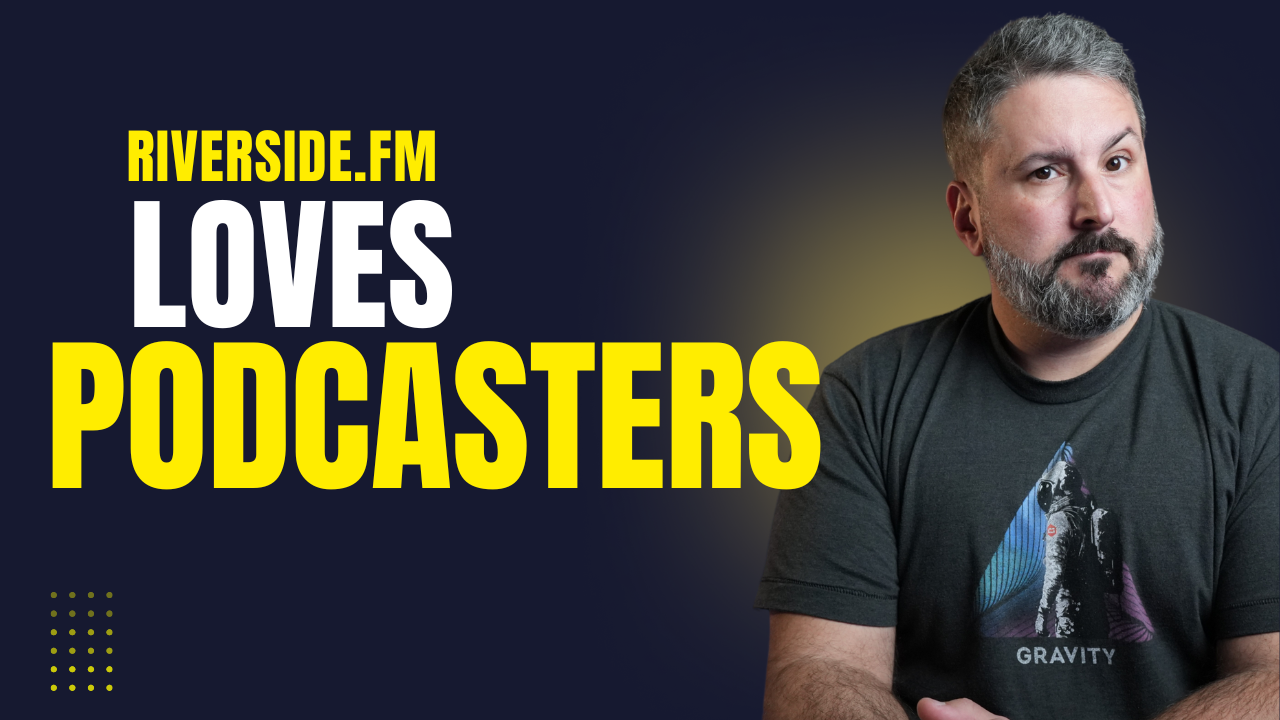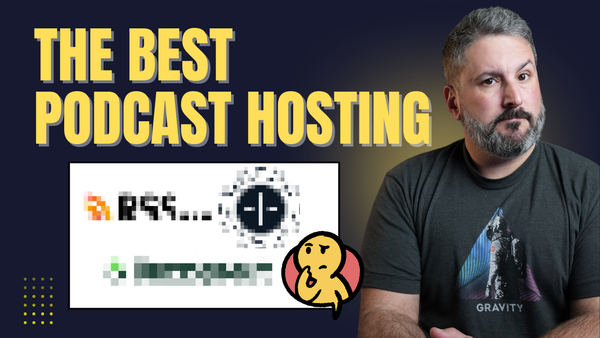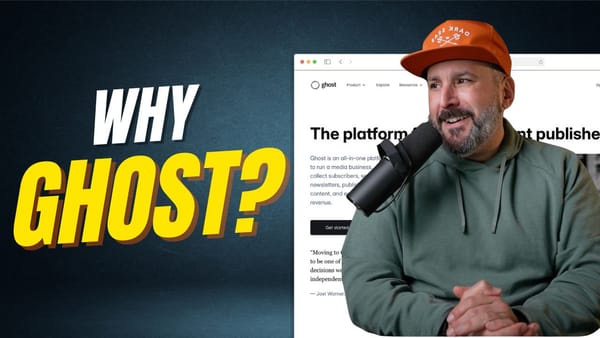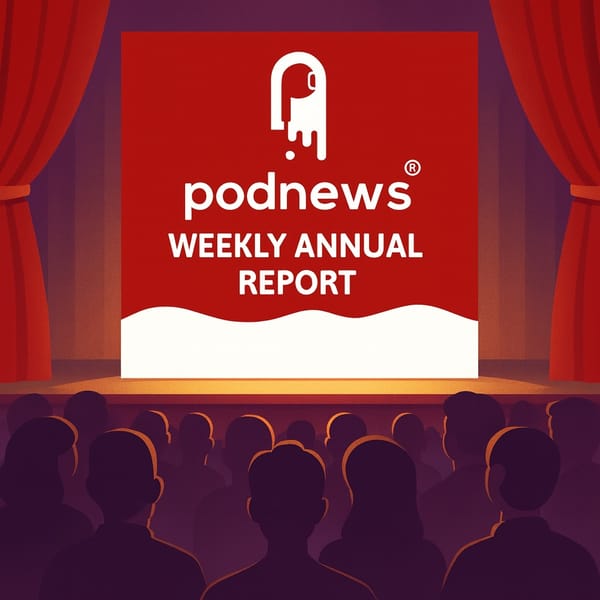Riverside Overtakes Descript as My Podcast Production Tool of Choice

After 18 years of podcasting and countless hours spent in various editing suites, I never thought I'd say this: I'm moving away from Descript for podcast production. As someone who's been using Descript for years and genuinely loves the platform, this decision didn't come lightly. But the reality is that Descript seems to be falling out of love with podcasters, pivoting heavily toward AI, video, and avatar creation as they chase bigger enterprise markets.
Meanwhile, Riverside has been quietly building exactly what podcast producers need, and they're executing it better than anyone else right now. Where Descript has become increasingly clunky and unfocused, Riverside offers a streamlined, podcaster-first experience that respects both my time and my workflow.
Here are the four key reasons why Riverside has won me over:
1. Lightning-Fast Performance That Keeps You in the Flow
Riverside's transcript editing is simply snappier than what I've experienced elsewhere. Everything feels more responsive, from basic cuts to timeline manipulation. When you're working with long-form content or multiple layers (which is most podcast editing), this performance difference becomes a game-changer.
The timeline work is particularly smooth, which has always been a pain point in other editors. I can get through edits faster, which means more time for the creative aspects of podcast production rather than waiting for the software to catch up. It's the kind of performance improvement that you don't realize you needed until you have it.
2. Thoughtfully Designed AI Tools That Just Work
Riverside takes a "powerful but simplified" approach to AI features that I absolutely love. Instead of wrestling with precise numerical values, I get intuitive controls: "better," "best," or "least" for pause removal. Smart, balanced, cut, or mute options for filler words. There's less critical thinking required for routine tasks, which keeps me focused on the bigger picture.
The "Smart Mute" feature alone is worth highlighting. It automatically mutes tracks when someone isn't speaking, which should be a no-brainer feature for any interview-style podcast. These aren't just AI features for the sake of having AI; they solve real workflow problems that podcast producers face every day.
3. Automatic Content Creation That Saves Hours
One of Riverside's standout features is how it handles clip creation. After recording, Riverside automatically creates clips, shorts, and longer segments without any prompting from me. No multi-step workflows, no compositions to manage, no waiting around. You finish recording, and your content is ready to review and publish.
For busy podcast producers juggling multiple shows, this automation is a massive time-saver. I can focus on the creative decisions rather than the mechanical process of identifying and creating clips. The quality is consistently good, and the variety gives me plenty of options for social media and promotional content.
4. A Clean, Purpose-Built Interface
Riverside's interface stays laser-focused on podcast production. Everything is where you'd expect it to be, and the design language is consistent throughout. There's minimal mental overhead in figuring out where features are or how to accomplish basic tasks.
What I appreciate most is how the interface doesn't try to accommodate every possible use case. It's what I call "intelligently simplified": powerful enough to handle complex edits, streamlined enough that I'm not fighting the interface. The learning curve is gentle, and experienced editors can dive right in without feeling overwhelmed by options they'll never use.
The Bottom Line: Hoping Riverside Stays Focused
While I'm genuinely excited about what Riverside is building for podcasters, I do have one concern about their future direction. Their recent announcement about adding podcast hosting feels like potential feature creep. Podcast hosting involves analytics, Podcasting 2.0 features, advanced website integration, and distribution management. When companies try to do everything, they often end up doing nothing particularly well.
My hope is that Riverside continues to excel at what they do best: making podcast production efficient, intuitive, and enjoyable. Right now, they're winning by staying focused on their core users. The podcasting community needs tools that understand our specific workflows and challenges.
For fellow podcasters considering Riverside: it's not perfect (their export workflow could use some refinement), but it's the most podcast-focused production tool I've used. Sometimes the best choice isn't the one with the most features. It's the one that does what you actually need, efficiently and well.
The switch from Descript wasn't easy, but Riverside has earned its place in my production workflow by simply being better at the things that matter most to podcast creators.
Running a podcast business is tough. Publishing your site and newsletter shouldn’t be. Ghost makes it simple. Get your podcast website & newsletter live on Ghost today.




